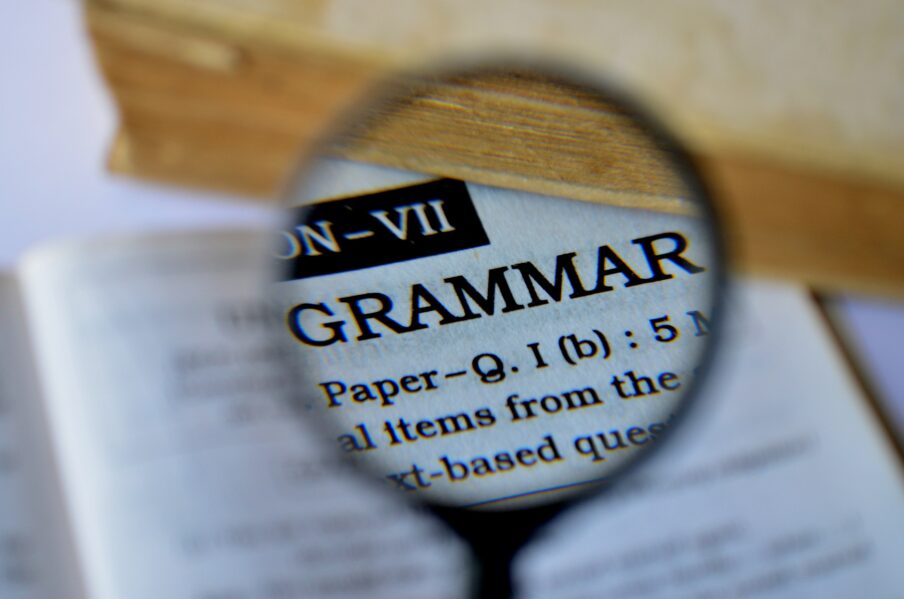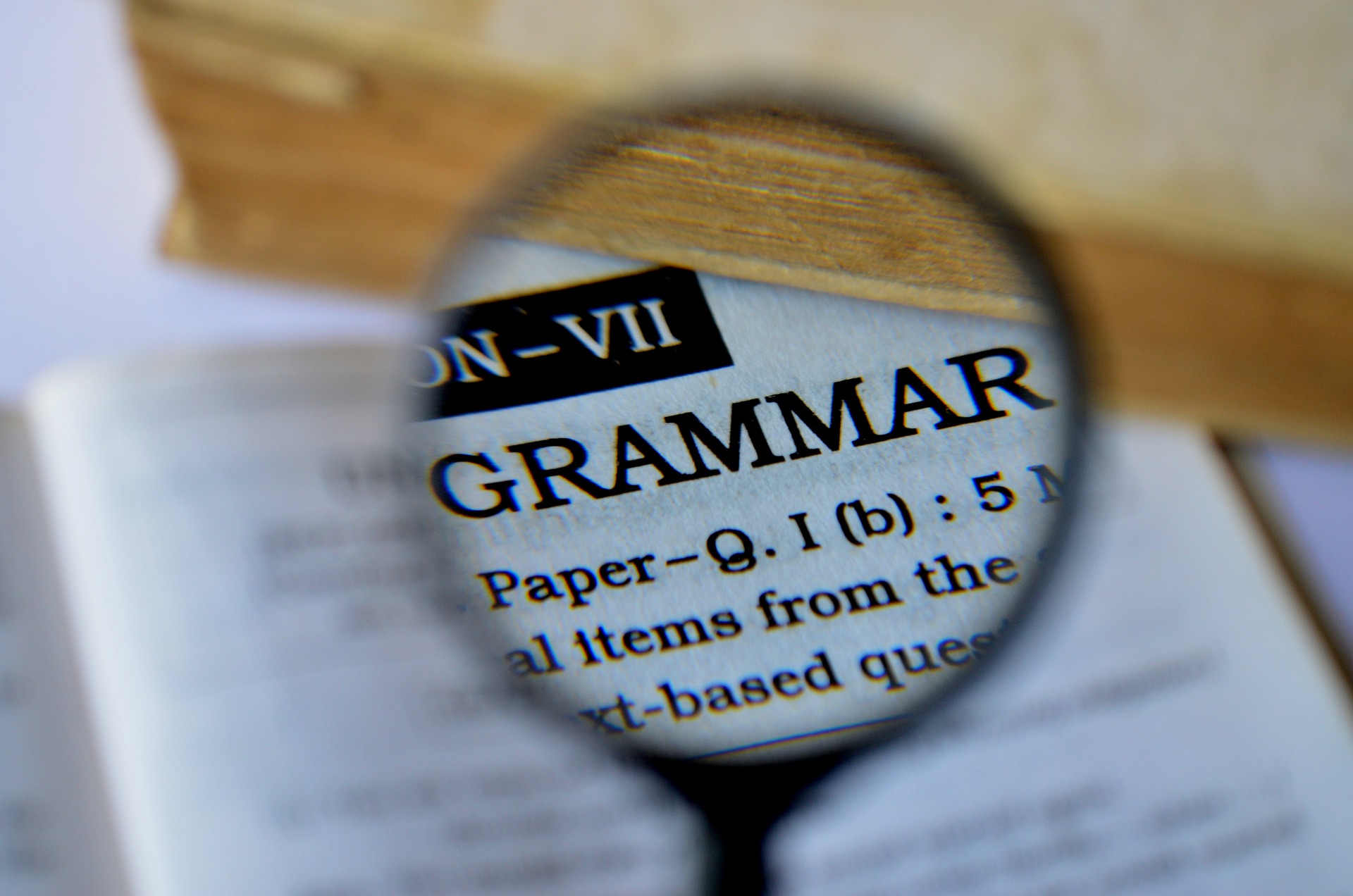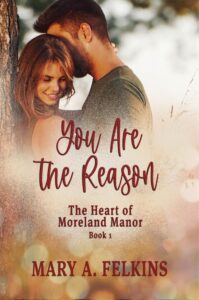by Mary A. Felkins, @MaryAFelkins
Conventional writerly wisdom urges us to avoid using “was” in our stories wherever possible. In its place we’re taught (ad nauseam) to select strong, descriptive verbs.
Use of “was”—and its being verb cousins—is deemed lazy writing.
Even scripture opens with a descriptive verb:
“In the beginning, God created …”
And “In the beginning, God was creative …” just doesn’t deliver the same visual effect.
We’d resoundingly give our all-wise Author an A+ for showing vs telling, yes?
And yet, we’ve all reads books by award-winning authors who’ve included “was” frequently throughout their stories. Clearly, that didn’t hinder them from deeply engaging and entertaining their readers.
Consider these impactful, story starters …
It was a dark and stormy night.
It was a bright, cold day in April, and the clocks were striking thirteen.
There was a boy called Eustace Clarence Scrubb, and he almost deserved it.
It was the best of times, it was the worst of times … (followed by multiple uses of “was”)
And if I may (and I will) share the intro to my recent release, You Are the Reason …
If ever there was a house that could make a widow out of a girl, it’d be Moreland. And if ever there was a girl least likely to embrace the inheritance of said house, it’d be Everley Scott.
A widow.

The war against “was” takes me back to the 80’s when I worked as a Dietitian. The prevailing nutritional wisdom discouraged consumption of butter. An outrage, I know, but we were taught that butter, when matched up against margarine, the plant-based alternative, was bad—a “one pat on a biscuit and you’re headed for a coronary” kind of bad. Hence, we hammered the “butter is bad” mantra into our gullible patients and clients.
Then came more research.
Turned out, when used in moderation, butter is perfectly acceptable. It adds a pleasing tactile and flavor value to our food. (Cue the cowbell ping of hallelujahs from dairy farmers.)
At some point in our quest to become exceptional writers, we’ve treated “was” like butter and become “Was” Nazis. But the search and destroy campaign against it sometimes results in narrative that feels forced, florid, and overdone.
During a recent, grueling round of edits, I’d tried various strong verbs in a sentence, exchanging one for another like outfits in a dressing room. Dissatisfied with the fit of any of them, I surrendered to the fact that the best verb to use was … was.
When I typed the word, I experienced an emotional buoyancy as if chains fell, a burdensome weight lifted, and I’d been liberated.
Thoughts to Help Us Become Reformed “Was” Nazis
- An overabundance of “was” saps the strength and energy of forward motion and results in a forgettable, one-dimensional story—the very thing we strive to avoid. But the occasional use of “was” is the odd bead on a necklace that gives pop and character and relief to the eye.
- If our effort to avoid “was”, we don’t want our sentences to read like it nor do we want a cast of characters who don’t sound authentic. Let cops be cops and cowgirls be cowgirls. Readers sniff out author intrusion a mile away. (Gasp. A cliche!)
- A strong verb is typically best, but not always.
Margarine is typically best, but not always—especially when it’s the creamy taste of butter on a biscuit we’re after.
Let’s give ourselves the freedom to incorporate “was” when appropriate rather than strive to cut it out altogether. Because if you give a sentence a “was”, what would readers do with it? They might rejoice.
I hope you benefited from this writerly wisdom.
No, I hope the content of this post equipped you well.
Or simply … I hope this was helpful.
You Are the Reason, Book 1
The Heart of Moreland Manor contemporary romance series
Elk Lake Publishing Inc.
A reluctant heiress.
A driven contractor.
An abandoned house in want of a family.
CPA Everley Scott knows exactly what she wants. Status quo. But when her inheritance of Moreland, an 1846 manor house, is at risk of being razed, she agrees to fulfill her mother’s final wishes to restore the house to its former glory and hire her contractor of choice.
Historic restoration specialist, Gabe Bellevue, is in need of a big contract to buoy his reputation as New Orleans’go-to guy. Stunned at his hefty price, Everley is cornered into involving a high-profile production company that offers funding in return for rights to film the project.
Production’s strict schedule pressures Gabe to rush the job, but his refusal could cost him the deal of a lifetime … and his last shot at satisfying unrequited love for Everley, his high school crush.
The discovery of an impassioned plea penned in the 1800’s by a former Moreland heiress might be the key to unlock Everley’s heart and enable her to embrace the historic treasure. Especially when it comes with a highly capable—and increasingly irresistible—contractor.
Will Moreland, once again, enjoy the sound of love and laughter within its walls?
Mary A. Felkins is an inspirational romance author, blogger, and contributor to writer’s blogs. Her debut novel, Call to Love, is set in Hickory, North Carolina, where she lives with her husband. They have four young adult children. She is a member of ACFW (American Christian Fiction Writers) and My Book Therapy.
Her purpose in writing is to reclaim God’s intention when he created the world –to enable readers to know his heart and experience his love.
The unmerited gift of an unopened bag of Peanut M&Ms® will lure her from her writer’s desk. A surprise appearance by her teen idol, Donny Osmond, would also do the trick, although she’d likely pass out.
If she likes your first or last name, expect to see it show up in one of her novels.
To receive Mary’s inspirational blog, quarterly author newsletter with giveaways, and/or launch team opportunities, subscribe via email on her website, www.maryfelkins.com
Mary A. Felkins’ books on Amazon: https://amzn.to/3cxll0d
Facebook: https://www.facebook.com/MaryAFelkins
Instagram: https://www.instagram.com/maryafelkins/
Goodreads: https://www.goodreads.com/author/show/19582128.Mary_A_Felkins
Pinterest: https://www.pinterest.com/MaryAFelkins/
Twitter: https://twitter.com/MaryAFelkins
LinkedIn: https://www.linkedin.com/in/mary-albers-felkins-9426a140/




Comments 1
I love this, Mary! “Was” is one of the words I search and often replace, but have learned that sometimes doing so simply doesn’t work, for all the reasons you’ve given. Thanks for putting it so succinctly. Love the butter analogy!